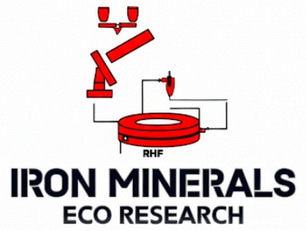The Mayari Pig Iron was a "natural alloy" that revolutionized metallurgy. At the time, it was a significant breakthrough because it inherently incorporated nickel and chromium, which simplified and improved the production of high-quality alloy steels and castings. The ability of Mayari Pig Iron to enhance the strength, solidity, surface appearance, and machinability of castings, as well as reduce sponginess and segregation, was a key factor. Additionally, its low melting point, higher fluidity, and extended ladle life improved working conditions in the foundry. In an era when adding alloys to the cupola charge or ladle was costly and didn't guarantee uniform distribution, Mayari Pig Iron offered a natural and efficient solution for introducing these valuable elements. This made it a very valuable base for manufacturing high quality castings. The possibility of producing it with a considerable range of silicon for different applications, from white iron castings to soft, machinable parts, underscores its versatility. Contemporizing, the Mayari Pig Iron ceased production decades ago, which made its evaluation and integration into more advanced metallurgical practices impossible, the principles that led to its widespread adoption remain fundamental in modern metallurgy.
Value of Natural Alloys and Enriched Raw Materials: Mayari Pig Iron demonstrated the immense value of raw materials with naturally advantageous compositions. Today, the search for ores and iron sources that already contain desirable alloying elements remains a goal, as it can simplify production processes and reduce costs associated with adding alloys separately. The efficiency and homogeneity offered by Mayari Pig Iron continue to be desirable principles in alloy formulation.
Importance of Trace Element Control: The fact that Mayari Iron was low in phosphorus and sulfur, and contained controlled amounts of nickel, chromium, vanadium, and titanium, highlights the importance of purity and precise chemical composition. In modern metallurgy, controlling trace elements and impurities is even more critical for achieving desired properties in high-performance steels and castings.
Impact on Casting Properties: The advantages of Mayari Pig Iron in casting (increased strength, solidity, improved surface, reduced sponginess, fine machining qualities, and extended life under heat and wear) are properties that modern founders continue to seek. While more sophisticated methods and alloys are now used to achieve these results, understanding how certain elements influence the microstructure and performance of metal remains a pillar of materials science.
Optimization of Casting Processes: Mayari Iron's ability to improve working conditions in the foundry due to a lower freezing point, higher fluidity, and longer ladle life is a testament to how raw material composition directly impacts process operability. Modern metallurgy focuses on process optimization, seeking alloys and methods that not only improve the final product but also make production more efficient and safer.
Relevance of Materials Science: The study and experimentation that led to the recognition of Mayari Pig Iron's properties are an early reflection of the importance of materials science. Today, the research and development of new alloys and materials with specific properties is an ongoing and vital field, driven by the need to meet increasingly rigorous demands in various industries, from automotive to aerospace.
In summary, the legacy of Mayari Pig Iron lies in its early demonstration of the power of natural alloys and the importance of raw material composition in final product performance. Although materials and techniques have evolved enormously over more than a century, the principles of seeking optimal compositions, controlling impurities, and understanding how alloying elements impact properties and processes remain at the heart of modern metallurgy.
